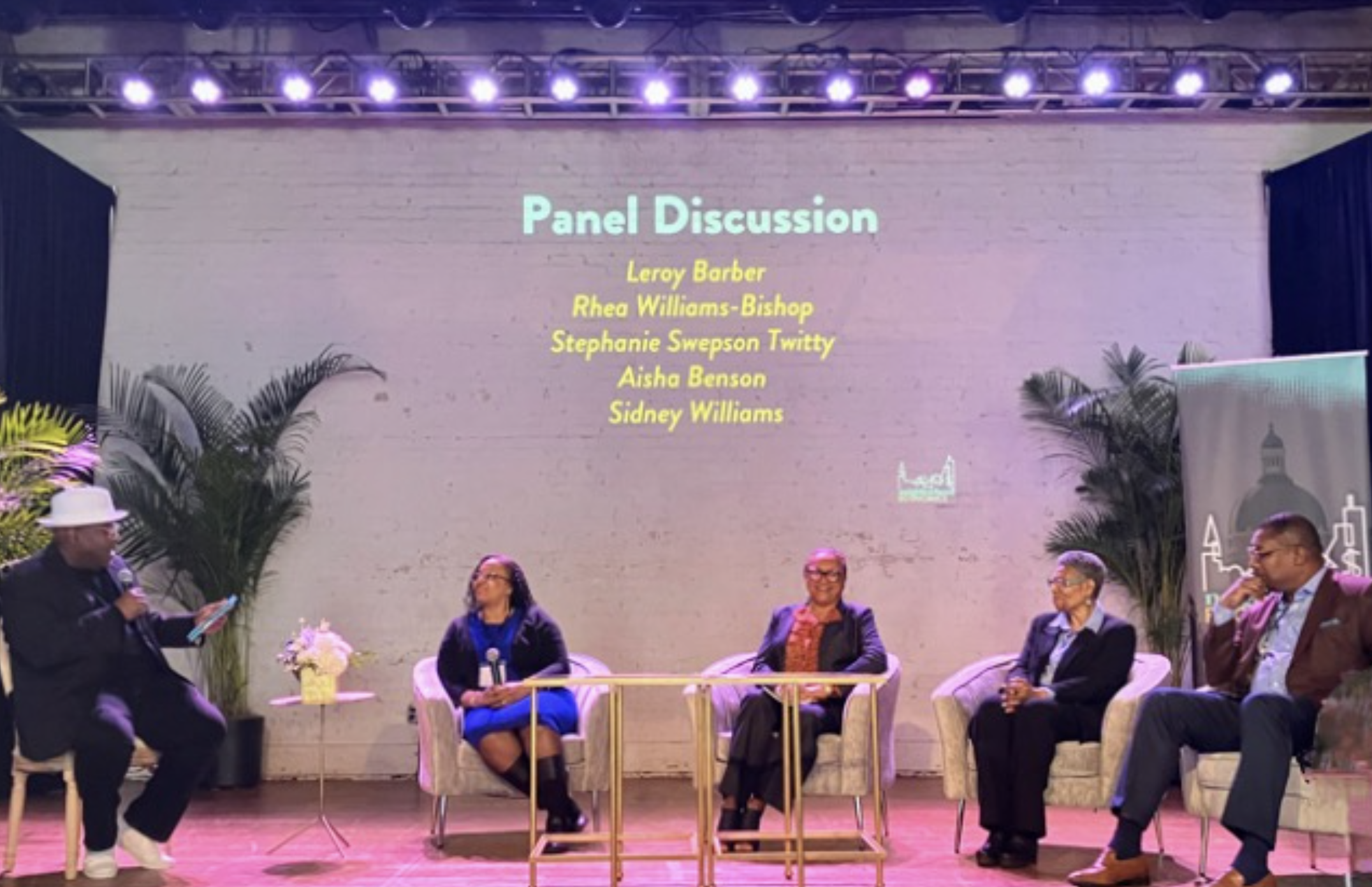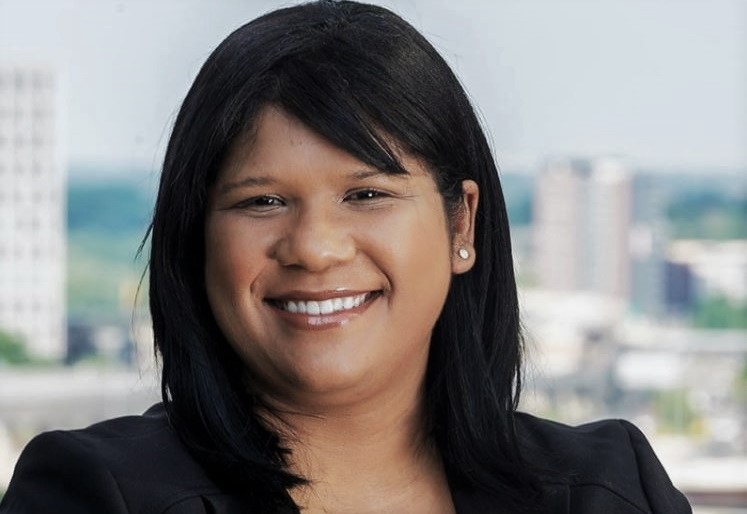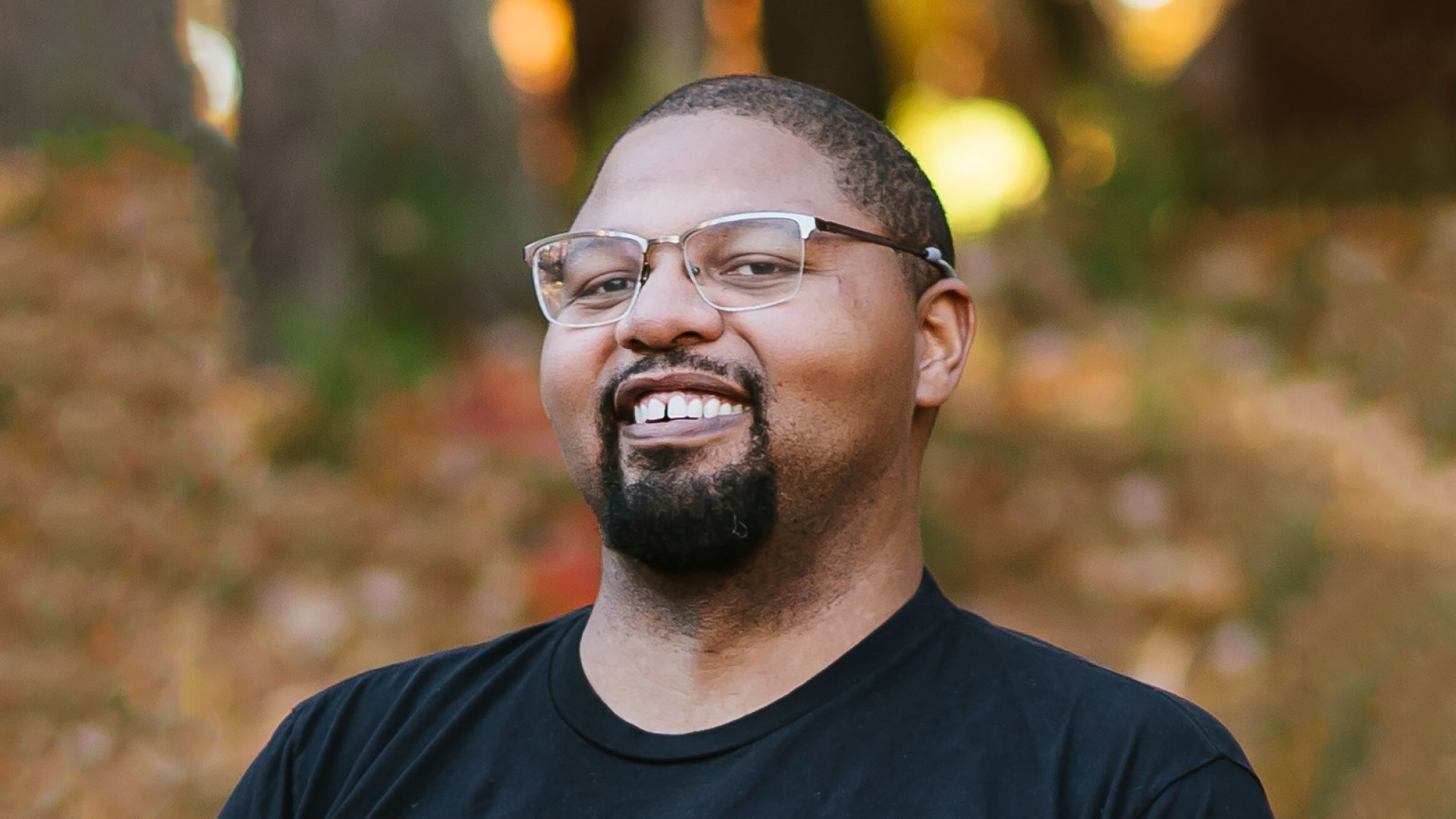ImpactAlpha, Mar. 1 – There was an important history lesson embedded in the confirmation hearings of Attorney General-designate Merrick Garland, who is expected to be approved this week. The very establishment of the Department of Justice in 1870 was intended to enforce the right to vote enshrined in the 15th amendment, ratified that year.
In the last few years, the U.S. has learned a corollary lesson: a broad-based popular mobilization is required as well to ensure that “The right of citizens of the United States to vote shall not be denied or abridged by the United States or by any State on account of race, color, or previous condition of servitude.”
On the latest episode in ImpactAlpha’s podcast series, The Reconstruction, host Monique Aiken sits down with sociologist and demographer Jessica Barron and her colleague Marion Johnson to discuss how women of color have mobilized themselves to protect and expand the rights to vote, and in the process turned themselves into key players in the future of democratic rule.
Women of color “are the major players in the game,” Barron tells Aiken. “If we’re gonna sit here and play this chess, we need to have these women on board.”
Barron and Johnson, with the North Carolina-based consulting firm Frontline Solutions, spent the last year talking with women organizers, scholars and elected officials of color who, despite facing systemic barriers, expanded their advocacy and organizing on behalf of their communities.
One insight: Women of color, who have been forced to deal with systems in a way that others haven’t, often have the insights, strategies and solutions that can benefit all.
Barron and Johnson’s report, Democracy’s Powerbrokers – The Political Power of Women of Color, foretold the potential of women of color to understand and turn out voters even before the mobilization of such voters, particularly in Georgia, proved decisive in both the presidential election and the January runoff election that determined control of the U.S. Senate.
The podcast conversation was recorded a week after the insurrection of the U.S. Capitol, which was effectively aimed at disenfranchising millions of voters. The issue of voter suppression has become even more urgent in the weeks since, as Republican politicians across the country use the myth of a stolen election to mount “extraordinary efforts to change the rules of voting and representation,” as The New York Times details in its lead story Sunday. “Politicians and scholars alike say that this moment feels like a dangerous plunge into uncharted waters.”
Already this year, GOP politicians have introduced more than 250 bills in 43 states to restrict voting access. Driving the backlash: Strategic victories for Stacey Abrams’ Fair Fight and other mobilization efforts that demonstrated the power of women of color to center issues that matter, expand voter rolls and ultimately swing elections (see, “Agents of Impact: Georgia’s organizers”).
Johnson and Barron say what happened in Georgia (and Arizona and, soon, North Carolina) can be replicated elsewhere. Two architects of Georgia’s transformation, Stacey Abrams and Lauren Groh-Wargo, outline the steps in “How to Turn Your Red State Blue.” It may take 10 years, they say. “Do it anyway.”
Proximity and progress
For all the demonstrated political influence of women in communities of color, they remain under-resourced. “We’re not bringing the capital, the right resources, to both the understanding and the women that you’re talking to,” Aiken says.
To strengthen and expand democracy, more attention and resources must flow towards boosting the efforts and political ambitions of Black, Latina, Asian, Native and other women of color.
“Those who have been pushed furthest on the margins, they have the best view,” says Barron. “We need to be talking to the folks who are the most on the margins, in an effort to really understand how to stabilize the shifts that are happening, and then how to kind of grow and rebuild into more empathetic structures.”
As women of color see themselves as politicians in their own right, says Barron, “you can move a state, which is what we saw in Georgia,” she says. “If you understand the political ambitions of women of color, then you can support and understand the extreme genius that they’ve had, and strategies to mobilize to create a more equitable civic engagement.”
In Democracy’s Powerbrokers, Barron and Johnson identify opportunities to bolster and sustain the political power of women of color. Among the pathways: Deepen pipelines that allow women of color to build political careers; support strategies that leverage an intersectional approach to issue areas that are important to women of color; and increase support for women of color led organizations engaged in organizing, civic engagement and advocacy efforts.
It’s not the moderate white voter that’s going to shift and move the tide for this country, argues Barron. “It is about the woman of color who has been doing this work. How do we then try to create a framework to understand her? How do we try to create scaffolding to support her? And how do we try to create pathways and essentially clear the way out so they can continue to move forward.”
At the heart of the case to center women of color in politics is the understanding that those most impacted by inequities can elevate the most robust and sustainable solutions for all of us.
GOP-led efforts to suppress the votes of people of color serve not to benefit white people, but to penalize them. Political strategist Heather McGee lays out that case in The Sum of Us, after spending three years visiting churches and worker centers and city halls across the country.
Instead of a “fixed quantity of prosperity,” McGee sketches a plan for what she calls Solidarity Dividends: “gains available to everyone when they unite across racial lines, in the form of higher wages, cleaner air and better-funded schools.”
“Racist stereotypes and dog whistles have strengthened the hand that beat progressives in the fight against rising inequality,” MdGee says. Did white people win? “No: Many of them lost good jobs, benefits and social mobility along with the rest of us not born into wealth.”
Solidarity dividends
As guideposts, Johnson and Barron point to Ai-jen Poo and her work with the National Domestic Workers Alliance and Caring Across Generations to create systems to support and respect caregivers. Nadia Brown talks about women of color as “the other swing vote,” who are a demonstration of ingenuity and genius as they navigate really unconventional pathways to political arenas.
United We Dream’s Cristina Jiménez speaks about how it was queer women who were behind the strategies that elevated Deferred Action for Childhood Arrival, or DACA. Rukia Lumumba of People’s Advocacy Institute says women don’t consider civic engagement to be a choice. Their motivation for engagement is based on protecting and sustaining their families and communities.
As we look beyond the pandemic, how can we ensure the ‘next normal’ is just, and succeeds? asks Aiken.
The next normal has to be a system based in empathy, says Johnson, and in “recognizing all of us in our humanity and as people who are parts of families and parts of communities and not just functionaries in an economy.”
“My hope is that we stop writing off women of color, we stop writing off the South as a foregone conclusion, and we start actually paying attention to the really phenomenal work that’s happening at the local level, at the state level, to really empower communities,” she says.
Women of color are shifting the paradigm of governing into a collective vision, says Barron. “If you don’t have everyone in that vision, you will always have cracks in the foundation.”
With Black millennials moving to the south, Latinos moving to the south, and larger immigrant populations moving to different parts of the country, she adds, “What organizations have done on the ground in Georgia can be replicated throughout.”
This podcast is part of ImpactAlpha’s new podcast series, The Reconstruction. Host: Monique Aiken. Editor: David Bank. Producer: Isaac Silk. Special thanks to Lyneka Little and Cesar Chavez.
Find episodes of The Reconstruction podcast, and all of ImpactAlpha’s coverage of racial justice and inclusive prosperity, on The Reconstruction landing page.











